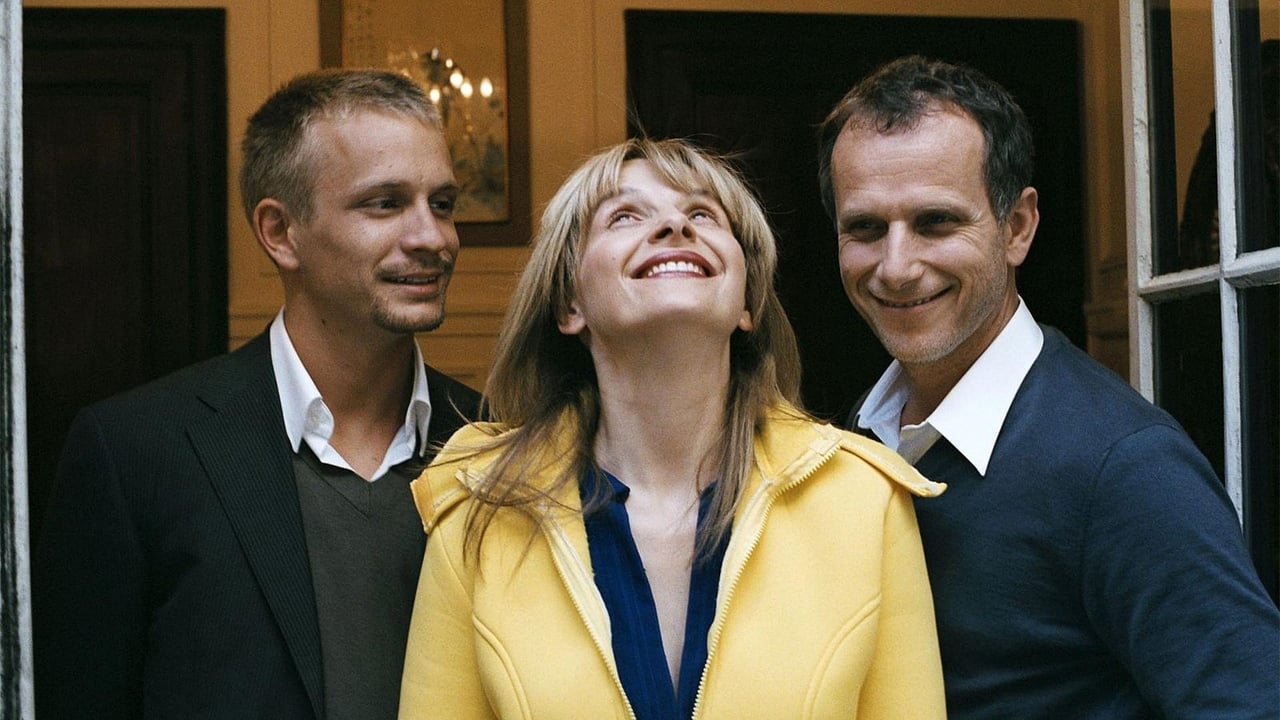

My only previous Assayas' approach is Maggie Cheung's Cannes BEST ACTRESS nabbing feature CLEAN (2004, 7/10), and for most Chinese media, Assayas seems to alway been in an ill-fated personage as Maggie's ex-husband. But his works matures splendidly with finesse and sobriety (from CLEAN to SUMMER HOURS), the latter resounds a similar pace of meditation and quietude as Hirokazu Koreeda's STILL WALKING (2008, 8/10), tackles with a slice of family life, with a contemplation towards the domestic heredity, globalized opportunism, alienated generations and art conservation. In dealing with a sentimental demise of a bourgeoisie matriarch, who resides in a suburban villa near Paris with all her uncle's art menagerie and his worthwhile sketching books (apparently he was a renowned painter himself and an unspeakable family secret), Assayas infills an indefatigable stamina to keep all the delicate matters in a civil restraint, the contradiction abounds among three siblings in regard to keep or sell the villa; and the proceedings of donating valuable art pieces has also been a bumpy road; for the elder son, he also has teenage children to worry about, and last but not the least, his abiding remembrance of the past is the most poignant blow to one who can fit into his shoes under the circumstances.The show has never been slid into a thespians' melodrama notwithstanding the fact that its indulgence of a top-billing Gallic cast, a blonde Binoche incarnates a very light-touch casualness as the metropolitan daughter, living in USA and dedicates herself more in bringing the work of art abroad for the international exposure; Renier, the younger son, finds both an opportunity in settling down in China and an exigent situation in which the profit of selling the villa couldn't come as timely as possible. While these two are soon-to-be-goners, without a pinch yearning for their homeland, the liability all falls on the elder brother (Berling), whose true-to-life embodiment of his character anchors the film's backbone in a concrete formality, it is a prickly situation will come about to anyone eventually. Edith Scob, as the deceased mother, whose first 30-minutes appearance contrives to establish herself as an indomitable shadow encroached by the past, when she is gone, something else will be taken with her together and forever, Scob is pitch perfect in her role's demanding of the physical infirmity, an unswerving mind of knowing her time is up and the duty as a bequeather.I have not conceal my preference to this quiet, reflective lifelike imitation than other more grandstanding razzle-dazzle, it is a simple film with a concise message delivered eloquently by the mastery of Assayas who auspiciously shoulders on the privilege of an auteur not only in the French terrain, but also as an international landmark, like many of his precedent compatriots.
... View MoreIt's a shame that we are required to write a minimum of 10 lines when reviewing a film because I cannot think of 10 lines worth of comment to make about this extremely dull film. My friend and I left half way through.A bourgeois family get together after their art collecting mother has died, and proceed to discuss various 'beautiful' objects she has left behind. This is presented without any irony whatsoever, as though initially at least, we are supposed to identify with these empty people or care about their useless objectified lives. I kept waiting for something to happen which would seriously disrupt proceedings - maybe there would be a revolution or one of them would get seriously maimed by an anarchist bomb.Unfortunately not.
... View MoreA film about talented rich people squabbling, albeit very gently, about an inheritance would normally be a candidate to make my hackles rise. But 'Summer Hours' is a sensitive, subtle movie, that explores non-judgmentally what is important to us, and why: in short, how we define our emotional identities. The characters seem likable, but display an ordinary selfishness, and the film lightly samples the passions that make each of them tick. It's a very wordy movie, so much so, it could almost have been a stage play, but the director has a great sense of place, evoking his characters own feelings for place and the movie never feels heavy. In one sense, the ending is a touch underwhelming; but in keeping with the film's overall style. I liked it, a lot: the sort of film that only the French seem to make.
... View MoreIn the early scenes of "Summer Hours," a 75-year-old French widow (Edith Scob), sensing that the end of her life is at hand, gathers her three adult children and their respective families together at their bucolic ancestral home to celebrate what she believes may be her final birthday. Though a proud mother and a dutiful wife, Helene Bertier has really lived her whole life dedicated to preserving the work and the memory of her uncle, a famous, well-respected painter (there are indications that there may have been more to their relationship than what was apparent on the surface). Two of her three children have scattered to the far-flung corners of the globe - Adrienne (Juliette Binoche) to New York City and Jeremie (Jeremie Renier) to China - while the oldest, Frederic (Charles Berling), alone of the three, remains in France. When the day of her passing finally arrives, the three siblings are faced with the universal dilemma of clinging to the past by holding onto the family estate with all the memories it contains or of selling it off and moving on with their lives."Summer Hours" is a beautifully realized film that captures the truths of familial relationships in subtle and knowing terms. The film has an unforced, spontaneous feel to it, due in large part to the lack of contrived plotting, the lifelike dialogue, the understated performances and the spontaneous, naturalistic style of film-making director Olivier Assayas has employed in service of the material. Though very little "happens" in the conventional narrative sense of the term, the film is never static because Assayas has made the camera an intimate though unobtrusive observer of the scene. We feel as if we are eavesdropping on these people, while, at the same time, becoming deeply involved with their lives and story. Even the conflicts that inevitably arise among the siblings are executed with amazing restraint and precision, completely devoid of the kind of hyperbole and histrionics that seem to blight so many "family dramas."The movie captures the sad reality that sometimes when a person's life is over, all that's left behind to commemorate that life is an assortment of "things," things that come to have less and less value to each succeeding generation as the personal meanings and memories associated with them recede with time. Yet, in the final scene there is a brief but poignant hint that there is still a continuity that runs through the generations, binding them together in shared experience, no matter how tenuous that connection may appear to the casual observer.Superb performances and artful direction make "Summer Hours" a treat in any season.
... View More